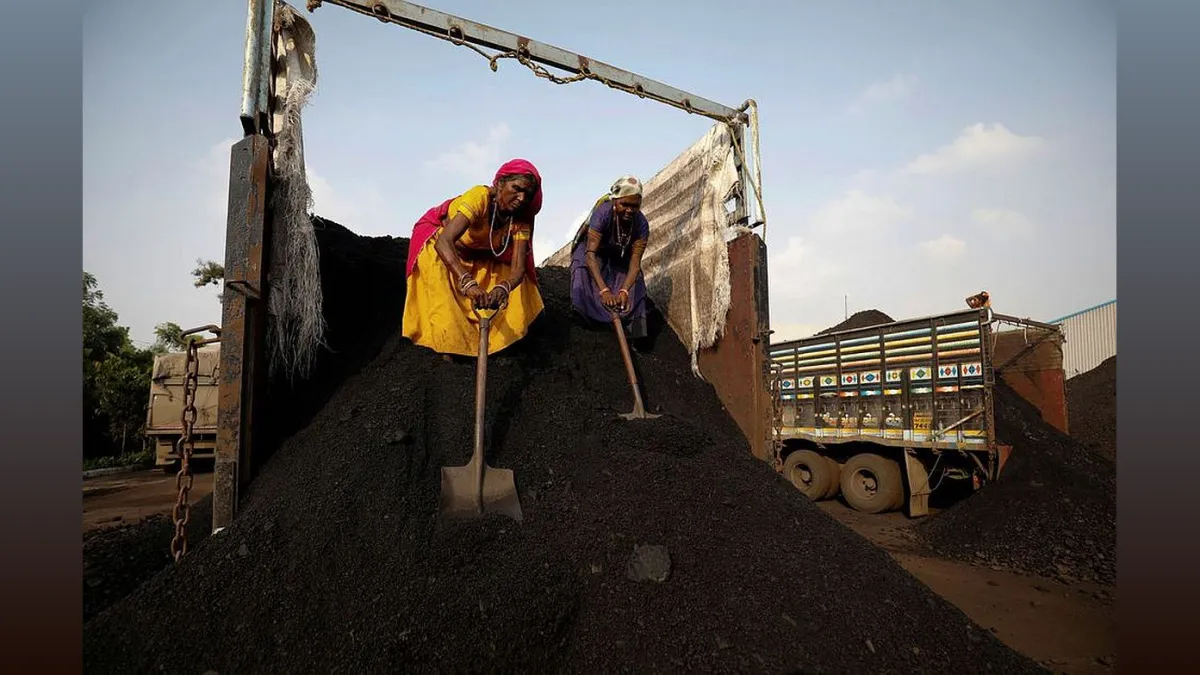Overburden Processing Plants: Govt Aims for Circular Economy
India's government is promoting a circular economy by setting up 6 overburden processing plants to produce M-sand, reducing reliance on river sand and creating jobs. This initiative aims to create economic development and environmental sustainability.

Photograph: Amit Dave/Reuters
New Delhi, Oct 22 (PTI) The government on Tuesday said six overburden (OB) processing plants and OB to manufactured sand (M-sand) plants are currently at various stages of installation within the public sector coal and lignite undertakings.
The move aims to promote a circular economy by turning waste into wealth.
The coal and lignite PSUs have commissioned four OB processing plants and five OB-to-M-sand pilot plants, the coal ministry said in a statement.
Historically seen as waste, OB is now being positioned as an asset with the potential to contribute significantly to environmental sustainability, economic development, and create employment opportunities for local communities.
Processing OB to produce M-Sand not only generates significant revenue for coal companies but also supports local economies by offering cheaper, high-quality sand for construction.
The report of the High-Powered Expert Committee (HPEC) on gainful utilisation of overburden in the coal sector unveiled on Tuesday talks about the strategies for processing OB to produce manufactured sand which can be used in construction projects, reducing the dependency on river sand and preventing environmental degradation.
The commercial sale of this M-sand is expected to generate significant revenue for coal companies, and support local economies, the report said.
It further said that setting up OB-to-sand processing plants will create jobs, boosting livelihoods in coal mining areas.
Effective OB utilisation reclaims land for productive uses like agriculture or infrastructure by reducing the need for OB dumps.
By decreasing dependence on river sand for construction industries, OB processing also protects ecosystems from erosion and degradation.
Additionally, OB contains valuable resources such as clay, limestone, and rare earth elements, which can support infrastructure development and other industries. Several successful pilot plants have demonstrated the viability of this initiative, contributing to environmental sustainability and fostering community engagement, trust, and well-being, the ministry said.
The move aims to promote a circular economy by turning waste into wealth.
The coal and lignite PSUs have commissioned four OB processing plants and five OB-to-M-sand pilot plants, the coal ministry said in a statement.
Historically seen as waste, OB is now being positioned as an asset with the potential to contribute significantly to environmental sustainability, economic development, and create employment opportunities for local communities.
Processing OB to produce M-Sand not only generates significant revenue for coal companies but also supports local economies by offering cheaper, high-quality sand for construction.
The report of the High-Powered Expert Committee (HPEC) on gainful utilisation of overburden in the coal sector unveiled on Tuesday talks about the strategies for processing OB to produce manufactured sand which can be used in construction projects, reducing the dependency on river sand and preventing environmental degradation.
The commercial sale of this M-sand is expected to generate significant revenue for coal companies, and support local economies, the report said.
It further said that setting up OB-to-sand processing plants will create jobs, boosting livelihoods in coal mining areas.
Effective OB utilisation reclaims land for productive uses like agriculture or infrastructure by reducing the need for OB dumps.
By decreasing dependence on river sand for construction industries, OB processing also protects ecosystems from erosion and degradation.
Additionally, OB contains valuable resources such as clay, limestone, and rare earth elements, which can support infrastructure development and other industries. Several successful pilot plants have demonstrated the viability of this initiative, contributing to environmental sustainability and fostering community engagement, trust, and well-being, the ministry said.
You May Like To Read
TODAY'S MOST TRADED COMPANIES
- Company Name
- Price
- Volume
- Vodafone-Idea-L
- 11.65 (+ 3.56)
- 106772451
- Alstone-Textiles
- 0.28 ( -3.45)
- 44187760
- Mangalam-Industrial
- 0.88 ( -2.22)
- 39177573
- Sunshine-Capital
- 0.27 (+ 3.85)
- 35956340
- GMR-Airports
- 104.40 (+ 6.37)
- 30453005






